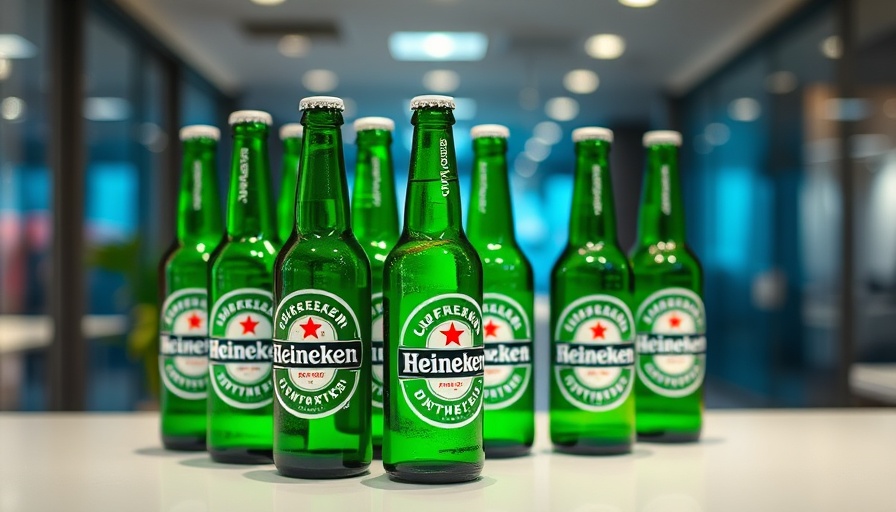
Heineken's Strategic Entry into China's Beer Market
As global consumer markets continue to evolve, Heineken's entrance into China’s beer landscape showcases a well-planned approach to tapping into new audiences. The global beer giant has adjusted its marketing strategies, focusing on local tastes and preferences while navigating the complexities of consumer behavior in the world's most populous country.
Understanding China's Beer Market
China's beer consumption has surged over the past decade, and restricted traditional beer brands have paved the way for international players. Heineken has made strides to seize this opportunity by aligning itself strategically with local tastes while embracing innovative marketing strategies. They have understood that successfully penetrating the Chinese market involves more than just selling beer; it necessitates a deep understanding of the cultural nuances that can dictate consumer preferences.
Insights from Local Partnerships
One of Heineken's key strategies for success in China has been forming partnerships with local distributors. Collaborating with established companies that possess a rich understanding of the local market has allowed Heineken to speed up its growth while minimizing risks. These partnerships serve as a bridge, enabling the brand to connect authentically with Chinese consumers who are increasingly looking for high-quality foreign beers.
Trends Shaping Beer Consumption in China
The future of beer consumption in China hinges on understanding evolving consumer preferences. Young drinkers increasingly prefer craft beers and premium options over the standard mass-produced varieties. This trend is driven by the growing emphasis on unique experiences and quality among Millennials and Gen Z consumers. Heineken's product lines have thus been adjusted to cater to this burgeoning segment of the market, reflecting a shift towards flavors that are distinctly crafted while maintaining the brand’s global identity.
Corporate Social Responsibility and Sustainability
In addition to understanding market demands, Heineken has taken significant steps towards integrating sustainability into its business model in China. As Chinese consumers become increasingly environmentally conscious, brands that prioritize corporate social responsibility are gaining an edge. Heineken's initiatives aimed at reducing waste in its operations and sourcing materials sustainably resonate well with the local market and position the brand favorably among eco-conscious consumers.
Navigating Economic and Regulatory Challenges
Heineken has also had to navigate complex regulatory frameworks and potential economic challenges presented by the Chinese market. Trade regulations and local compliance can be daunting for foreign companies. However, Heineken’s proactive approach to learning and adapting to these regulations has allowed for smoother operations, maintaining their competitive edge in the beer market.
Future Predictions: Changes on the Horizon?
As Heineken continues to grow its market share in China, predictions about its trajectory indicate a potential expansion into other beverage categories. Should the current trends in consumer behavior continue, Heineken may diversify its offerings further to include non-alcoholic beverages or fruit-infused options that appeal to health-conscious consumers. Such strategic moves can enhance its market penetration and fortify its status in an ever-competitive landscape.
Concluding Insights
Heineken's journey through China's nuanced beer market illustrates the importance of localizing business strategies to align with consumer preferences while highlighting the corporate responsibility initiatives that resonate with today’s customers. By focusing on sustainable practices, building partnerships, and adapting to consumer trends, Heineken sets the stage for continued success in one of the world's most lucrative markets.
 Add Row
Add Row  Add
Add 



Write A Comment